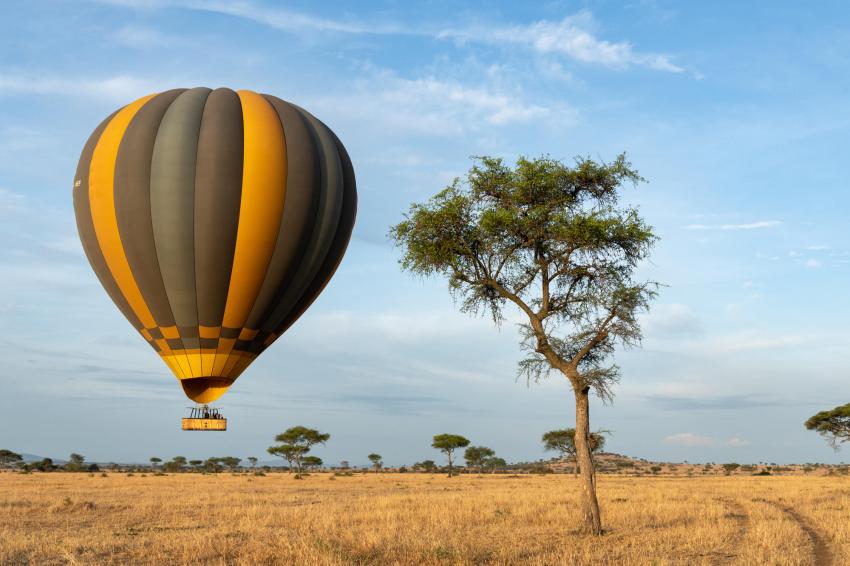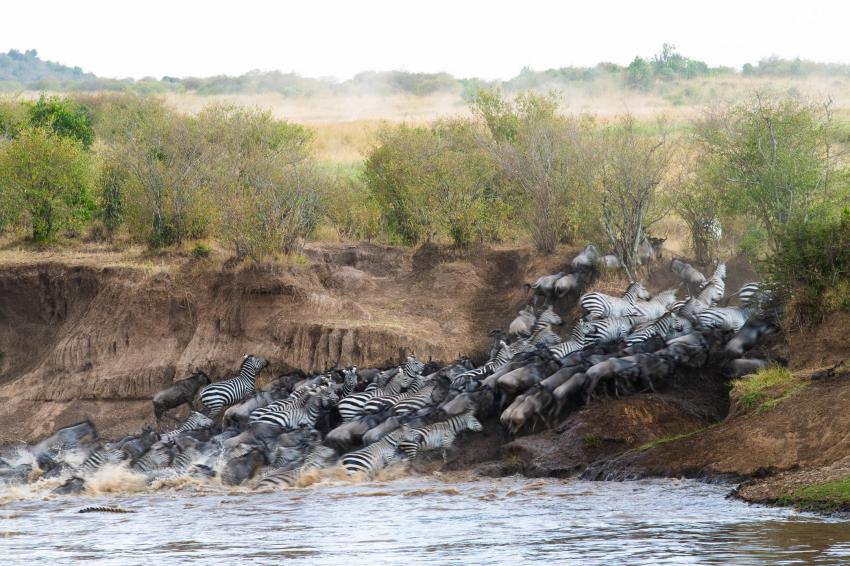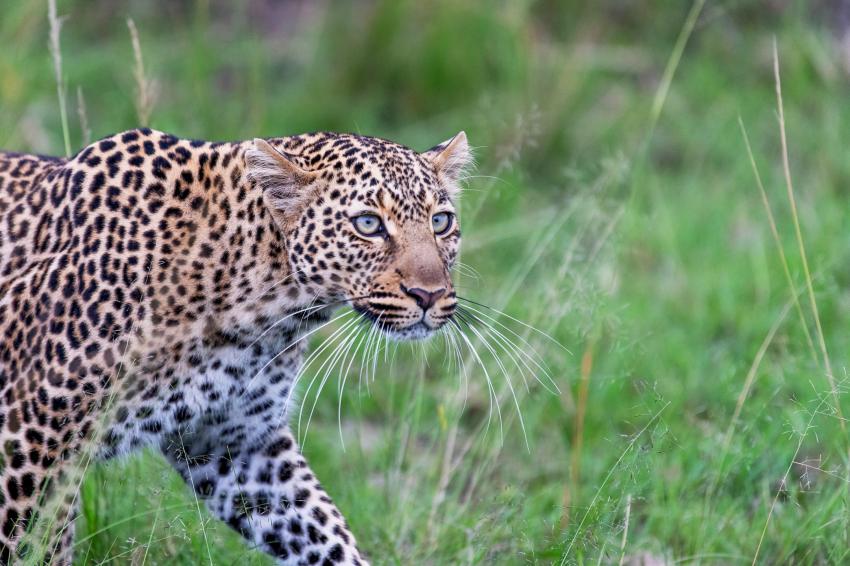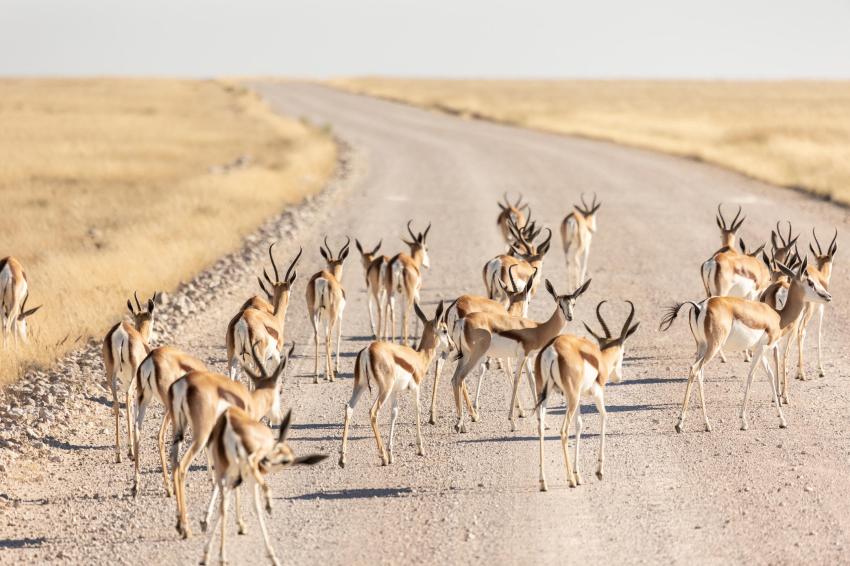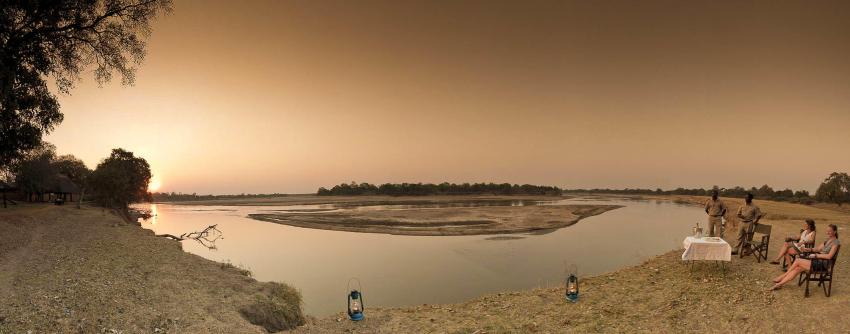For many, an African safari is the ultimate travel experience. Witnessing the raw power of nature and encountering incredible wildlife in their natural habitat is truly awe-inspiring. From the vast plains of the Serengeti to the lush riverbanks of the Chobe, Africa offers a diverse range of safari destinations. This guide explores seven of the best national parks and reserves, helping you plan your dream African adventure.
1. Iconic Serengeti National Park, Tanzania
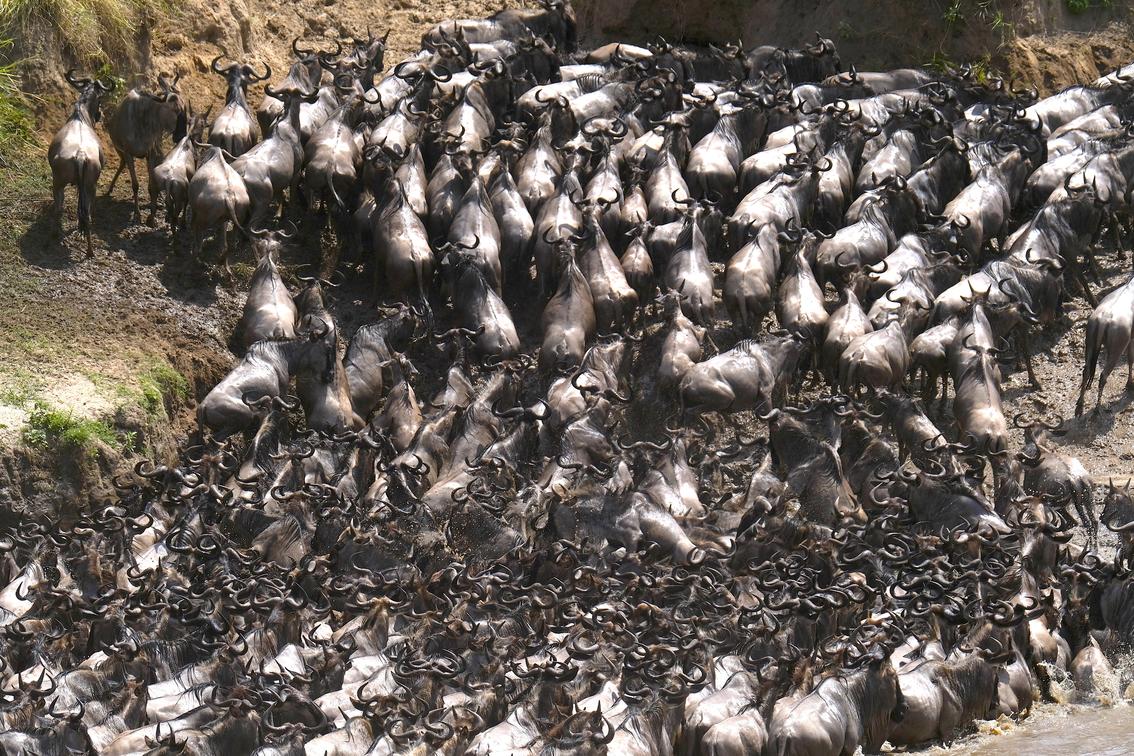 The Serengeti, renowned for its vast savannahs and incredible wildlife, is a bucket-list destination for many safari enthusiasts. Witness the Great Migration, a breathtaking spectacle where millions of wildebeest and zebras embark on an annual journey across the plains.
The Serengeti, renowned for its vast savannahs and incredible wildlife, is a bucket-list destination for many safari enthusiasts. Witness the Great Migration, a breathtaking spectacle where millions of wildebeest and zebras embark on an annual journey across the plains.
- Key Attractions: Great Migration, "Big Five" sightings (lion, leopard, elephant, rhino, buffalo), diverse birdlife.
- Activities: Game drives, hot-air balloon safaris, guided nature walks.
- Best Time to Visit:
- Dry Season (June-October): Best for wildlife viewing, with animals concentrated around water sources.
- Green Season (November-May): Witnessing the Great Migration, lush landscapes, but higher rainfall.
Witness the Migration
2. Majestic Maasai Mara National Reserve, Kenya
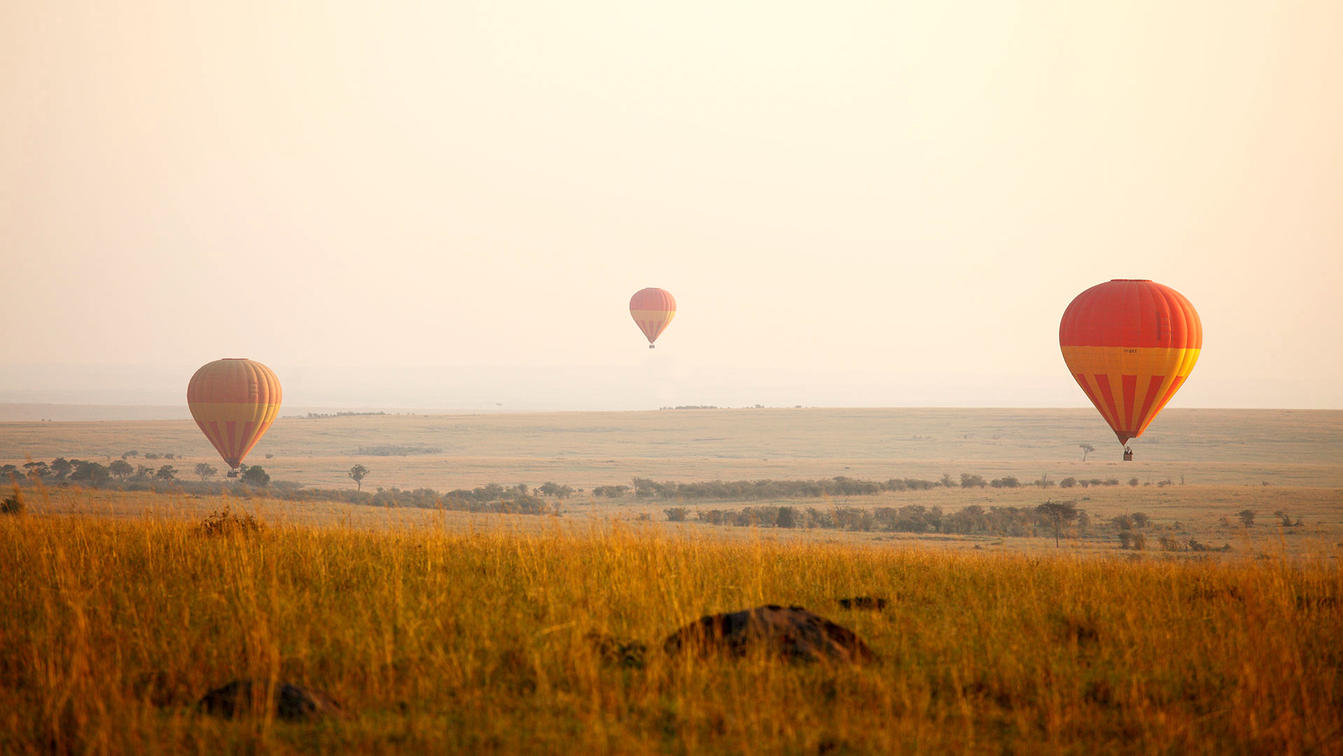 The Maasai Mara, bordering the Serengeti, is famous for its own incredible Great Migration crossings. Witness the drama as herds of wildebeest attempt to cross the crocodile-infested Mara River.
The Maasai Mara, bordering the Serengeti, is famous for its own incredible Great Migration crossings. Witness the drama as herds of wildebeest attempt to cross the crocodile-infested Mara River.
- Key Attractions: Great Migration crossings, diverse wildlife, cultural encounters with the Maasai people.
- Activities: Game drives, cultural village visits, hot-air balloon safaris.
- Best Time to Visit:
- July-October: Peak migration season.
- June & November: Shoulder seasons offer fewer crowds and good wildlife viewing.
Explore the Mara
3. Diverse Kruger National Park, South Africa
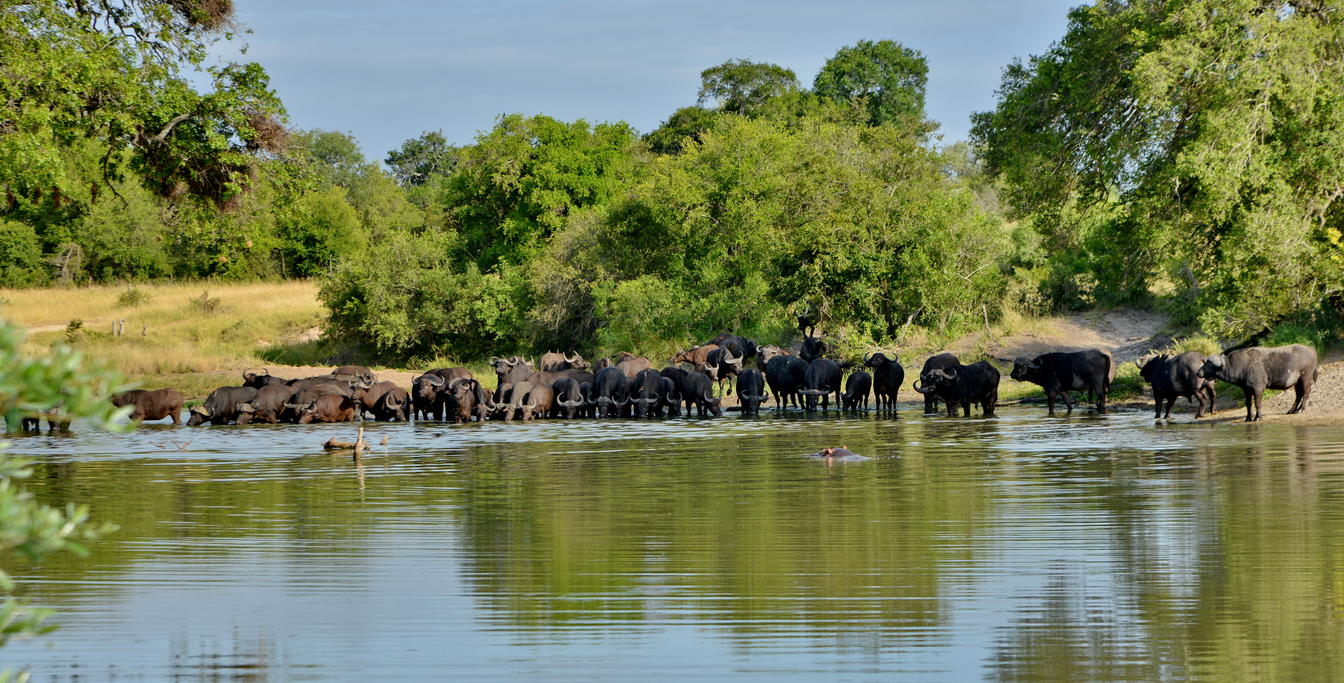 Easily accessible from Johannesburg, Kruger National Park is a South African icon. Experience diverse landscapes, from savannahs and woodlands to riverine forests, and encounter a wide range of wildlife, including the "Big Five."
Easily accessible from Johannesburg, Kruger National Park is a South African icon. Experience diverse landscapes, from savannahs and woodlands to riverine forests, and encounter a wide range of wildlife, including the "Big Five."
- Key Attractions: "Big Five" sightings, diverse ecosystems, self-drive safaris, bush walks.
- Activities: Game drives, bush walks, night drives, birdwatching.
- Best Time to Visit:
- May-September: Dry season, with animals concentrated around waterholes.
- December-March: Green season, with lush vegetation and newborn animals.
Explore Kruger
4. Chobe National Park, Botswana: A Wildlife Paradise
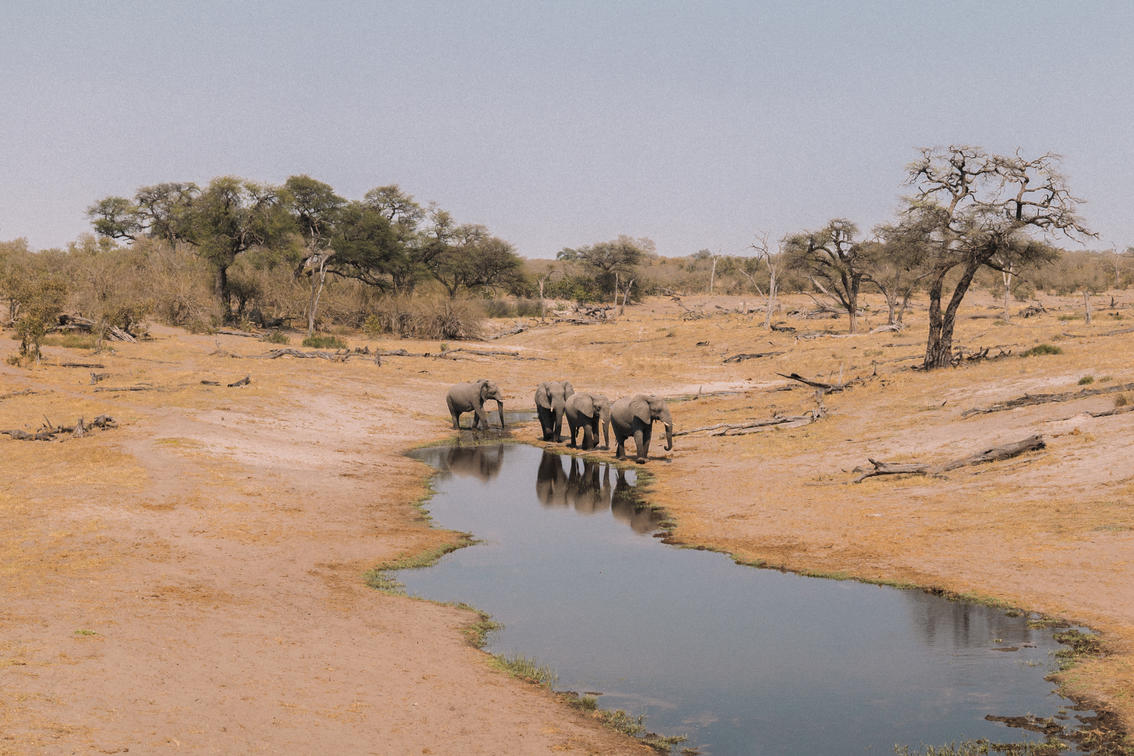 Chobe National Park is renowned for its elephant herds and diverse ecosystems. Enjoy thrilling boat safaris on the Chobe River, where you'll encounter hippos, crocodiles, and a variety of birdlife.
Chobe National Park is renowned for its elephant herds and diverse ecosystems. Enjoy thrilling boat safaris on the Chobe River, where you'll encounter hippos, crocodiles, and a variety of birdlife.
- Key Attractions: Large elephant herds, diverse wildlife, boat safaris, stunning river views.
- Activities: Game drives, boat safaris, birdwatching.
- Best Time to Visit:
- May-October: Dry season, with animals concentrated around water sources.
- November-April: Green season, with lush vegetation and newborn animals.
Discover Chobe's Wildlife
5. Captivating Ngorongoro Crater, Tanzania
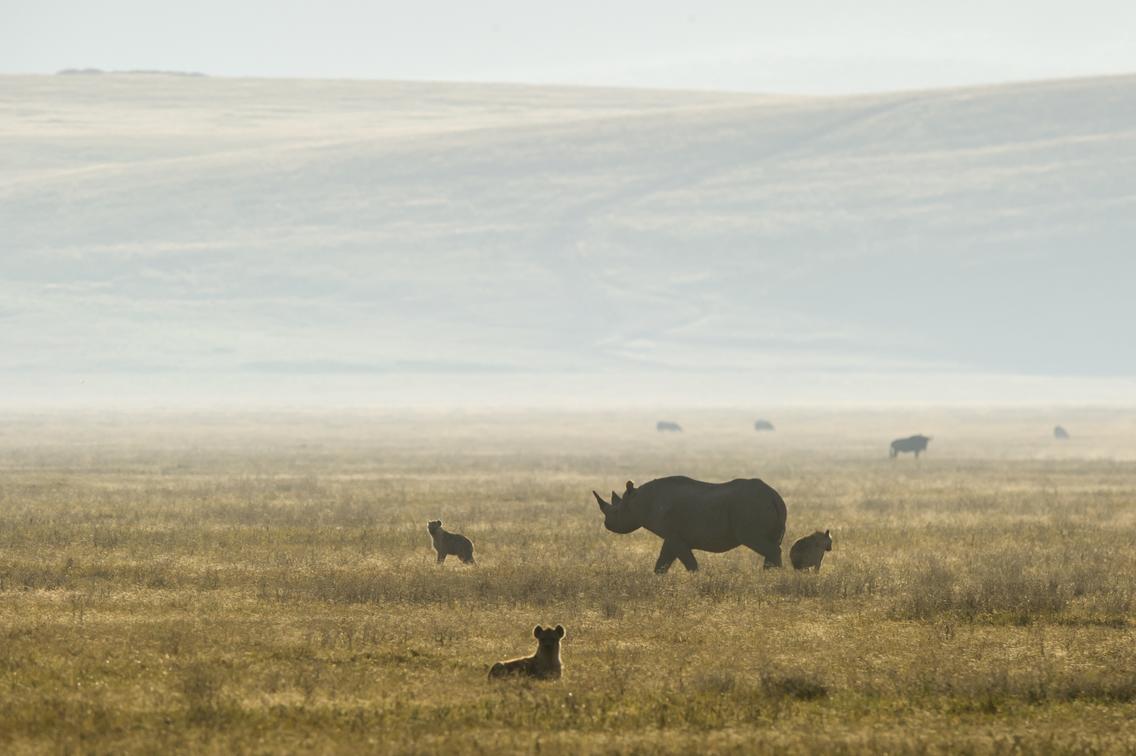 The Ngorongoro Crater, a UNESCO World Heritage Site, is a natural wonder. Witness a high concentration of wildlife within this stunning volcanic caldera, including the "Big Five."
The Ngorongoro Crater, a UNESCO World Heritage Site, is a natural wonder. Witness a high concentration of wildlife within this stunning volcanic caldera, including the "Big Five."
-
Key Attractions: High wildlife density, "Big Five" sightings, breathtaking scenery, Olduvai Gorge (paleontological site).
- Activities: Game drives, crater descents, cultural visits, birdwatching.
- Best Time to Visit:
- June-October: Dry season, with good wildlife viewing.
- December-March: Green season, with lush vegetation and newborn animals.
Witness the Wonder
6. Enchanting Etosha National Park, Namibia
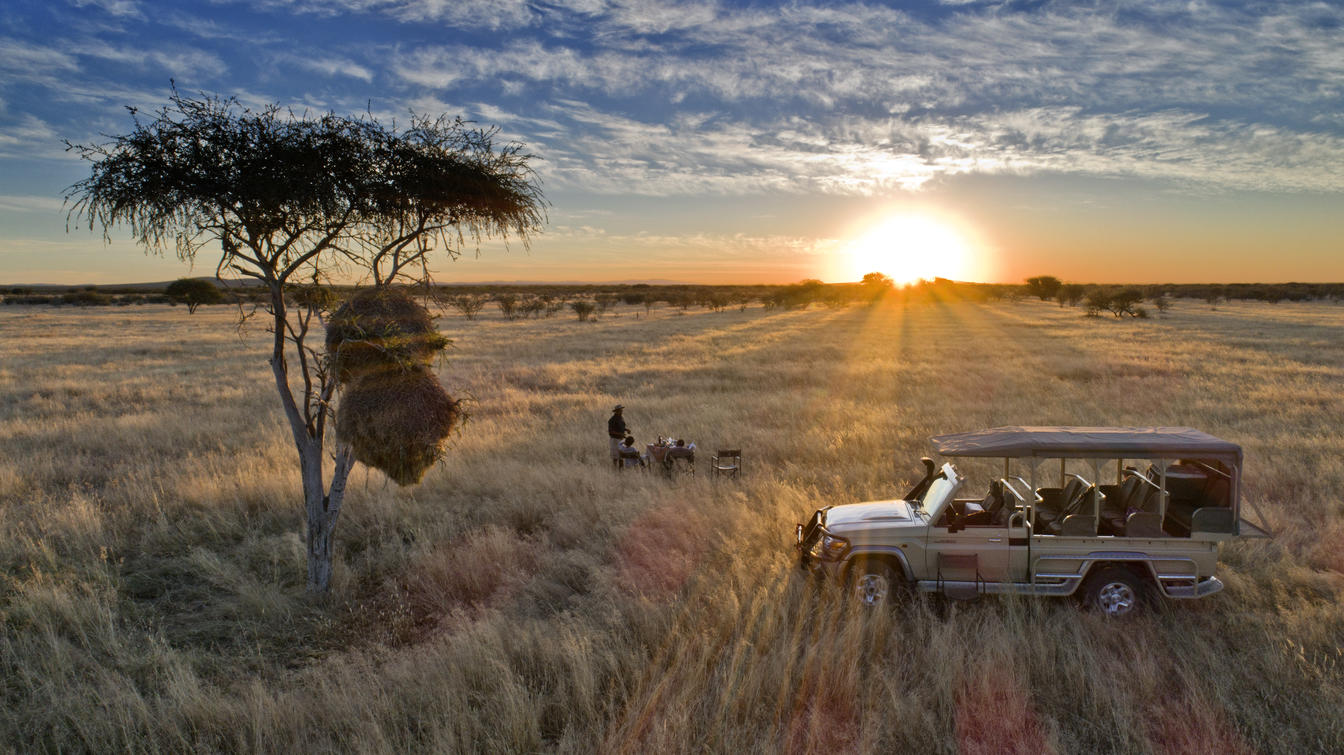 Etosha National Park, known for its vast salt pan, offers incredible wildlife viewing opportunities. Witness elephants, zebras, and a variety of predators congregating around waterholes.
Etosha National Park, known for its vast salt pan, offers incredible wildlife viewing opportunities. Witness elephants, zebras, and a variety of predators congregating around waterholes.
- Key Attractions: Vast salt pan, diverse wildlife, self-drive safaris, unique desert landscapes.
- Activities: Game drives, self-drive safaris, nature walks, birdwatching.
- Best Time to Visit:
- May-September: Dry season, with animals concentrated around waterholes.
- December-March: Green season, with lush vegetation and newborn animals.
Salt Pan Safari
7. Enigmatic South Luangwa National Park, Zambia
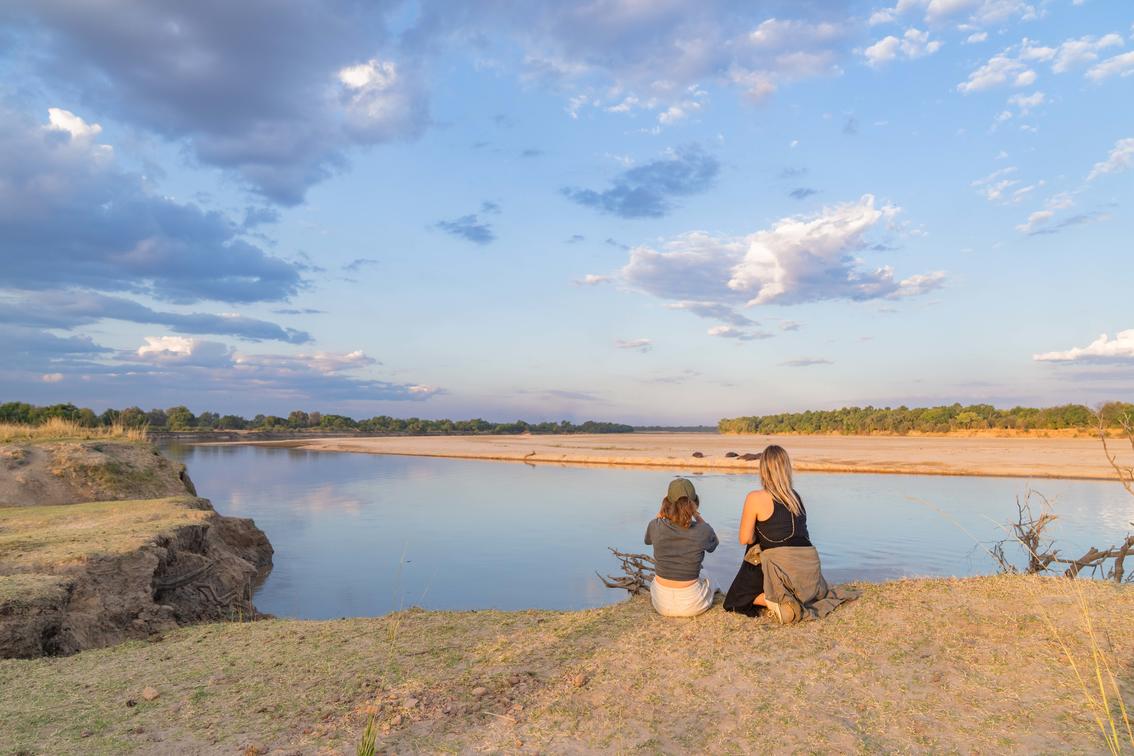 Experience the untamed wilderness of South Luangwa, known for its walking safaris and high leopard density. Explore the lush riverine forests and encounter diverse wildlife, including elephants and Thornicroft giraffes.
Experience the untamed wilderness of South Luangwa, known for its walking safaris and high leopard density. Explore the lush riverine forests and encounter diverse wildlife, including elephants and Thornicroft giraffes.
- Key Attractions: Walking safaris, high leopard density, diverse wildlife, unique landscapes.
- Activities: Walking safaris, game drives, boat safaris, birdwatching.
- Best Time to Visit:
- May-October: Dry season, with good wildlife viewing.
- December-March: Green season, with lush vegetation and newborn animals.
Untamed Wilderness Awaits
Planning Your African Safari?
Choosing the right time to visit is essential to make the most of your adventure. Consider key factors like wildlife migrations, weather conditions, and your personal preferences. Ready to start planning? Let us guide you with expert advice and tailored recommendations for an unforgettable safari experience.
Help Me Plan



